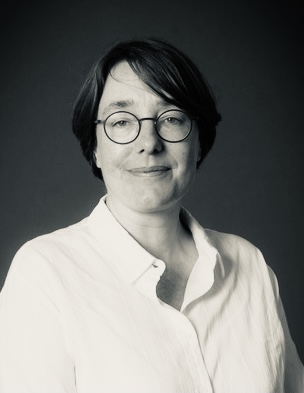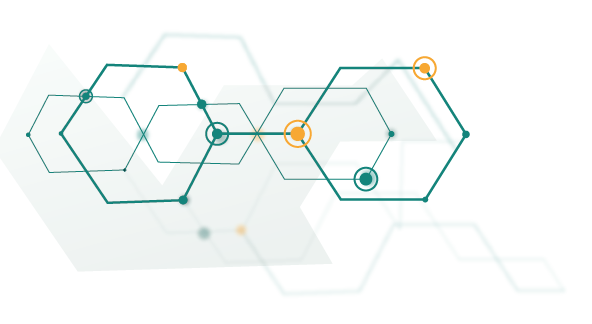
Kornelia Konrad
Biography
https://people.utwente.nl/k.e.konrad
Talk
Hydrogen visions and projects between past, present and future
The hydrogen hype is in full swing, as visible in policy strategies and diplomacy, support programmes, projects being planned and built, media and academic debate, company strategies and investments. Hydrogen visions in Global North countries like Germany or the Netherlands currently focus on decarbonizing otherwise hard to abate industries, such as steel or chemicals. These visions often include large scale globalized green hydrogen production and transportation systems connecting industries in Global North countries with production sites in Global South countries with promising profiles of renewable resources like wind and solar. These visions differ from those that fuelled former hydrogen hypes, suggesting some caution in how confident we should be about current visions and priorities.
In my talk, I will take concrete visions and projects of hydrogen projects in the Global South as a lens to study and discuss how these projects are taking shape and how they are debated in the different countries involved, drawing on media, document and interview analysis. These visions and projects can be considered as socio-technical futures in the making – reflecting their status of discursive visions, expectations and imaginaries, and at the same time materializing in the form of agreements, roadmaps, contracts, studies, financial arrangements and grants, land assigned, technologies being built, infrastructures planned etc. While a lot of the discussion around green hydrogen in Global North countries relates to more or less shiny visions and high-level ambitions on mitigating CO2 emissions, debated largely in research, policy and industry circles, controversies around concrete local projects in a country as Namibia revolve around distribution of benefits and financial risks, governance and transparency, fair use of resources, environmental impacts or the relation between serving local needs or export. Further points addressed will be the variety in visions and projects, the openings and closures that are likely to be created for future energy systems and how old and new colonialism is discussed in both Global North and South countries.

Noortje Marres
Biography
Noortje Marres is Professor in Science, Technology and Society at the University of Warwick (UK). She is also a Visiting Professor affiliated with the Media of Cooperation research centre at the University of Siegen (Germany). Noortje is currently leading the AHRC-funded research project “AI in the street”, and has just completed a Leverhulme Fellowship on intelligent technology testing beyond the laboratory. She studied sociology and philosophy of science and technology at the University of Amsterdam, and has published three books Material Participation (2012), Digital Sociology (2017) and Inventing the Social (2018, co-edited with Michael Guggenheim and Alex Wilkie).
Talk
Testing facts:
On tech trials in the public sector and the politics of falsifiability
In this talk, I examine two recent controversies about tech trials in the public sector in the UK to develop an analysis of the politics of technology testing and counter-testing “beyond the laboratory”: the NHS-Deepmind controversy and the use of facial recognition by the Metropolitan police in London. I will argue that these controversies demonstrate the importance of knowledge politics to the politics of innovation today. In both cases, the very status and definition of the object of technology testing in society became the focus of public contestation. Can tech deployments in hospitals, shops and streets really be defined as test when the consequences for affected parties are real? Do tech trials evaluate algorithmic systems, or are underpinning data infrastructures part of what is being tested? The answers to these two questions not only have implications for the distribution of epistemic power in tech trials, they also determine to a significant extent whether the politics of innovation pursued through tech trials qualifies as authoritarian or democratic. I will argue that ultimately at stake here is the falsifiability of technological propositions. Today’s tech trials are embroiled in a techno-politics of non-falsifiability: even as tech is continuously being tested in hospitals, shops and streets, trial designs render technology unchallengable from the standpoint of everyday life. However, at the same time, these trials are being challenged through new forms of epistemic activism, in which the creation of conditions of falsifiability and the articulation of testing facts – the demonstration of inaccuracy, bias and abuse of power – becomes a key contribution of activist intervention.

Erik Aarden
Biography
Erik Aarden is assistant professor with the Department of Science, Technology & Society Studies at the University of Klagenfurt. His research so far has focused on governance and questions of access in medical research and innovation. His empirical focus has been on genetic diagnostics in Europe and collections of research materials and data in Asia, Europe and North-America. Erik has previously worked at the University of Vienna, the Harvard STS Program, RWTH Aachen and Maastricht University.
Talk
Collective goods? The making of “population health” in medical tissue and data collections
Against the background of great expectations associated with the application of big data and artificial intelligence in medicine, various voices have claimed that individuals have a moral obligation to make data and tissue materials available for research. This obligation is not only associated with the amounts of materials required in contemporary medical science, but also with presumptions that science produces a public good called medical knowledge. In my presentation, I critically examine this claim by drawing on four case studies of medical data and tissue collections, asking for and about which ‘collectives’ knowledge on health and disease is created. I present each case study as an exemplar for how infrastructures for the collection, storage and use of population data for medical research are constructed and frame particular versions of ‘collective goods’ in contemporary medical research. I first explore how the multi-decade Framingham Study of the causes of heart disease in the United States may be understood as an infrastructure enabling certain directions for research while restricting others. Next, I turn to the Singapore Tissue Network as an example of the complexities involved in finding shared purpose in the collection, storage and use of human tissue und data. I subsequently discuss the Million Death Study of causes of mortality in India as a case of the construction of populations through health data. Finally, I analyze contested meanings of medical research through the example of the European network of sample and data collections BBMRI-ERIC. While each of these cases is situated in different geographic locations and largely distinct areas of medical research, they jointly illustrate how the making and operations of medical research collections produce particular ‘collectives’ and ‘goods’. These imply distributions of rights and responsibilities that cannot fully be captured in terms of medical knowledge as a public good. The question whether and how people should participate in medical research thus requires more substantial consideration of the distributive implications of how infrastructures for the collection, storage and use of population data for medical research get built.

